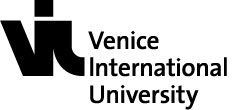March 31- April 4, 2025 | 2nd Edition
Call for applications: November 15, 2024 - January 15, 2025
Communicating research to public and policy audiences is becoming a key element of researchers’ work, but can be challenging when researchers lack the required skills and have little experience of engaging with audiences outside the academic arena.
It is essential to make researchers more aware of the importance of public science communication and engagement, especially since these activities are increasingly demanded by research funders and policymakers as a pathway towards societal impact of research. But, to be effective public communicators, researchers need training to equip them with the key competencies and the confidence to communicate strategically using a wide range of tools and channels, and evaluating impact along the way.
Methodology and structure
The School draws upon the state-of-the-art of science communication literature as well as on relevant best practice in the field, combining lectures, exercises, simulations, discussions, case studies, and site visits. All participants will also have an opportunity to present their own research.
Learning outcomes
- acquire practical skills for pro-active and strategic research communication
- deepen the knowledge on publics, media and strategies to effectively communicate research results
- deepen the knowledge on informal communication (e.g. museums, events, art, etc.)
- experience practices for research communication in different cultural and professional environments
- exploring multidimensional impacts of research
- learn about methods and tools for evaluating science communication
- exchange experiences
Faculty
Alessandra Fornetti, Venice International University (Scientific Coordinator)
Ilda Mannino, Venice International University (Scientific Coordinator)
Marina Joubert, Stellenbosch University
Lars Guenther, Ludwig- Maximillians-Universität (LMU)
Julia Serong, Ludwig-Maximillians-Universität (LMU)
Monica Déchène, Ludwig-Maximilians-Universität (LMU)
Marco Bettiol, University of Padua
Elenora Di Maria, University of Padua
Who is it for?
The School is designed for researchers and graduate students from all research disciplines across Natural and Social sciences, Engineering and Humanities.
Credits
Number of ECTS credits allocated: 2
A Certificate of attendance will be issued at the end of the course.
Fees
Students of VIU member universities:
€ 250 incl. VAT.
Students of other universities:
€ 500 incl. VAT.
The fees will cover tuition, course materials, lunches in the VIU cafeteria and social events.
Student participants will be responsible for covering their own travel expenses to and from Venice, accommodation and local transportation.
VIU Alumni are eligible for a reduced fee.
PhD candidates and post-docs from EU universities may be eligible for Erasmus+ mobility grant support. Candidates should consult the International Office in their own university for information about the calls for applications for funding. VIU will provide any supporting documentation requested for such applications.
Contact VIU Erasmus office: erasmus@univiu.org
For further information, please download the brochure or write to: summerschools@univiu.org
In collaboration with 
Funded by the EU ![]()
























